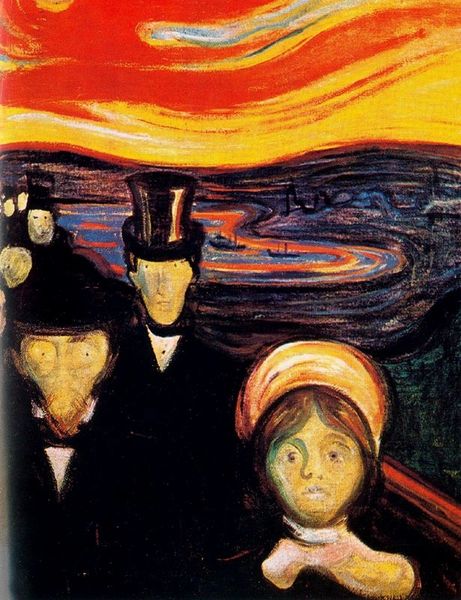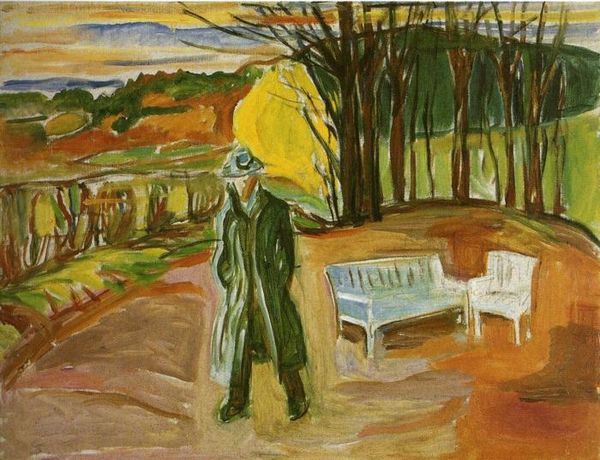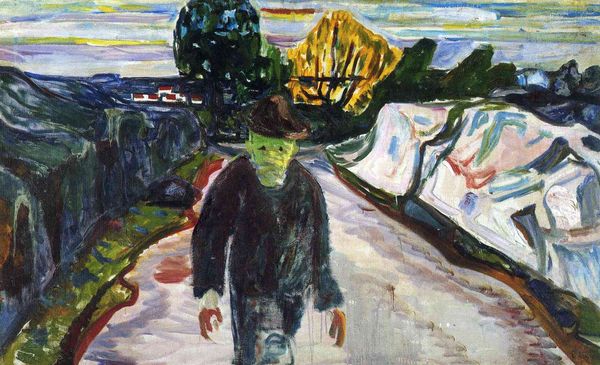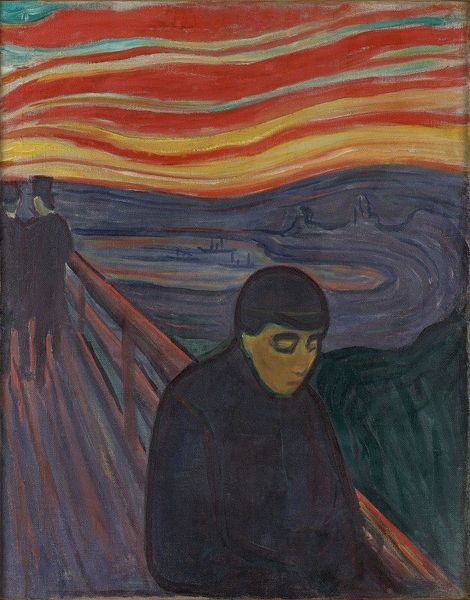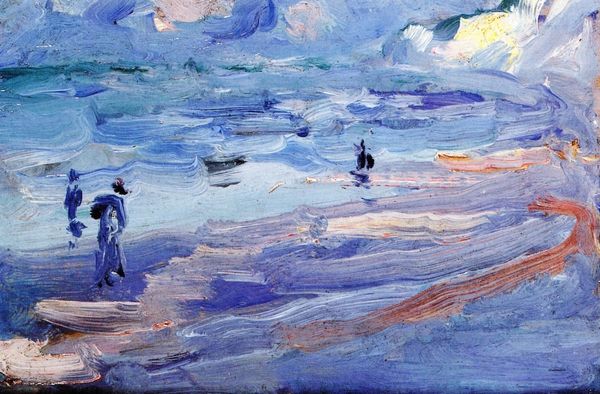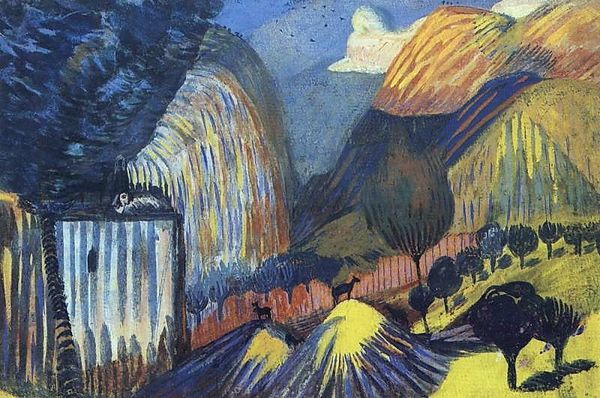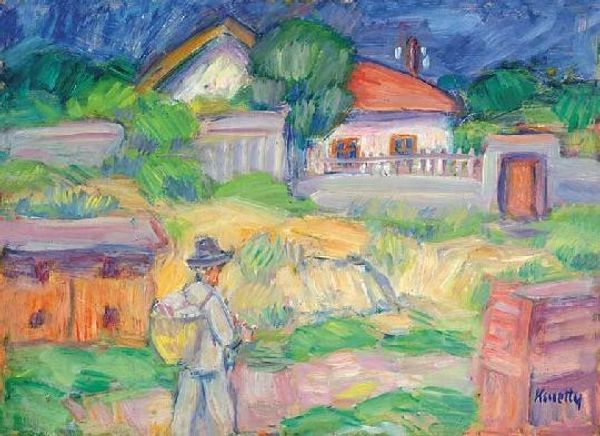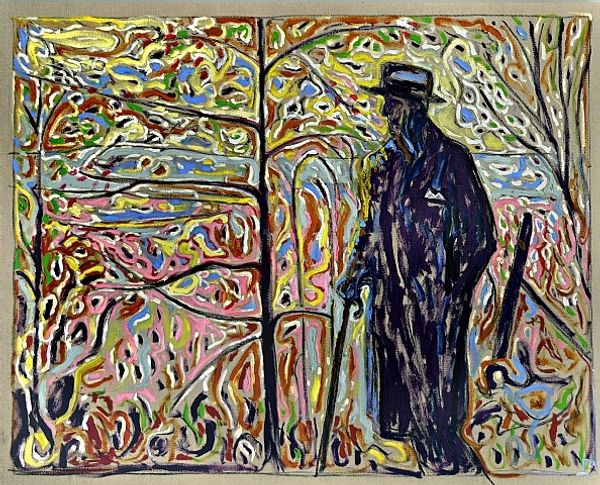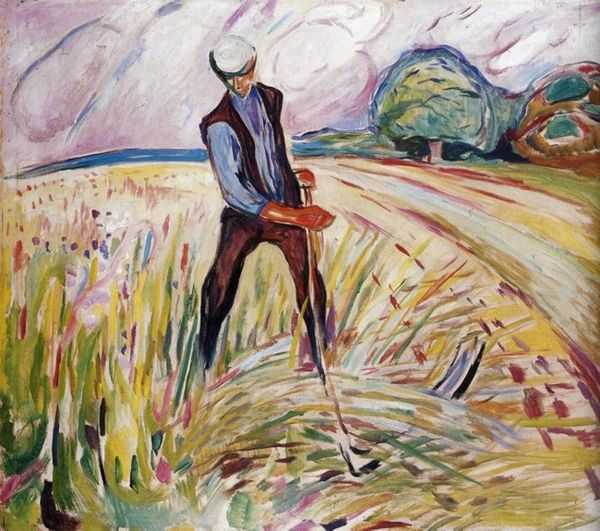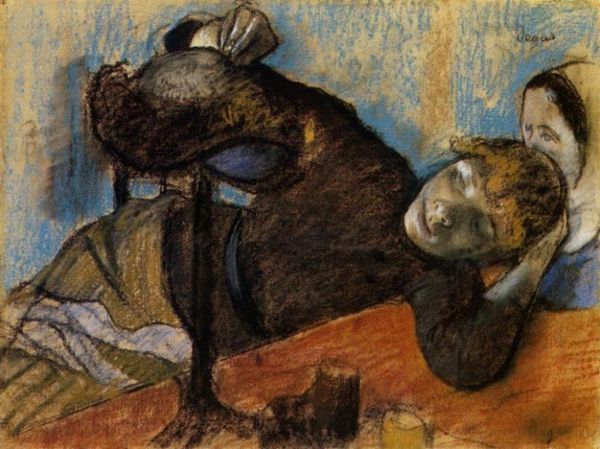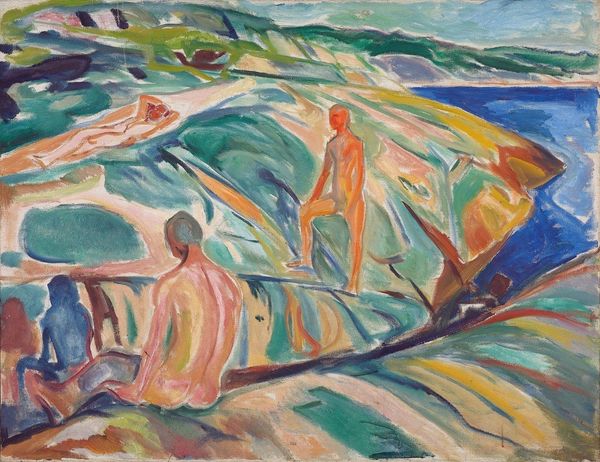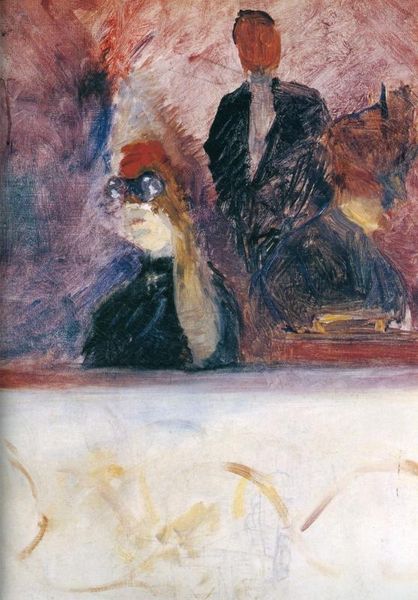
painting, oil-paint
#
sky
#
painting
#
oil-paint
#
landscape
#
oil painting
#
expressionism
#
symbolism
#
portrait art
Copyright: Public domain
Curator: Welcome. Before us is Edvard Munch’s painting "Despair", from 1892. It is an oil on canvas. What's your first reaction to the piece? Editor: Overwhelmingly melancholic. The dark blues and greens contrasted against that fiery sky… It feels oppressive, like a weight on the figure in the foreground. Curator: The composition is quite striking. The figure's downward gaze directs our own. Note how the diagonals create a sense of unease, pulling the viewer into the landscape’s depth, as do the foreshortened parallel lines suggesting the promenade they are on. Editor: It certainly evokes the specific cultural context from which it came: the late 19th century in Europe, a period defined by existential questioning as old traditions break apart and modernity arrives. You see it here, even in their clothes. Curator: Indeed, Symbolism influenced Munch, focusing as it did on psychological experience over surface appearance. Consider the deliberate ambiguity of the figures’ faces – or lack thereof – creating a sense of universal alienation. Note the way the artist handles brushstrokes. There are almost topographical swirls of emotional impact. Editor: And it's difficult to ignore how societal pressures on men during this time could lead to intense feelings of isolation, of having to perform a specific role. That red sky, almost blood-like, is a powerful symbol of inner turmoil and perhaps societal distress made manifest in his painting. Curator: Quite possibly. Ultimately, while it is difficult not to overlay such narrative or theory on Munch’s image, it is the raw material presence, that oil on canvas, through its colors, lines and shapes, which generates the painting’s sense of despair. Editor: I’m more compelled to believe this artwork demands we contextualize individual feeling with broader cultural trends of disillusionment as well as political despair over colonialism and industrialization— both of which continued through to his own era. Curator: An excellent point that expands our understanding. I encourage everyone to reflect on the work. Editor: And on its powerful legacy as it explores personal torment within larger societal imbalances.
Comments
No comments
Be the first to comment and join the conversation on the ultimate creative platform.
